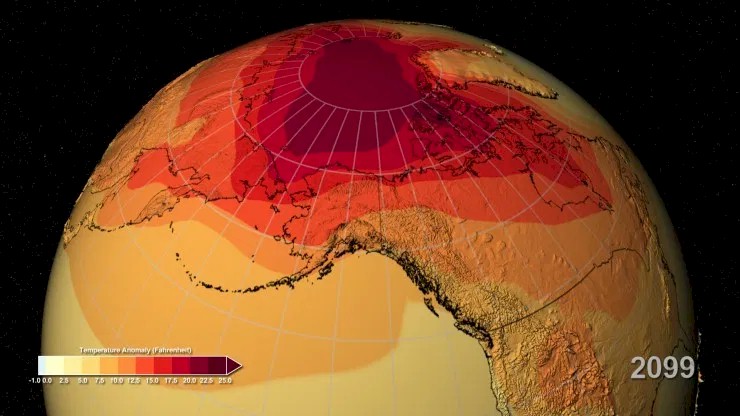The Climate Virus: Hysteria Needs To Shelter In Place
By I&I Editorial
IssuesInsights.com

Give the global warming alarmists credit. They never let circumstances distract them. Even amidst a pandemic, they continue to pump fear and fanaticism. It doesn’t matter to them if their fearmongering produces grave human costs.
Take a look at these headlines from just the last few days:
- “Climate change: Summers could become ‘too hot for humans.’” — BBC
- “Climate change: Polar bears could be lost by 2100” — BBC
- “Climate Change Poses ‘Systemic Threat’ to the Economy, Big Investors Warn” — New York Times
- “Major new climate study rules out less severe global warming scenarios” — Washington Post
- “Why the next president should establish a Department of Climate” — Vox
That’s a heavy load of mania for the public to bear. So we’d like to present a single headline in rebuttal:
“Climate-change hysteria costs lives – but activists want to keep panic alive.”
It tops an op-ed in the New York Post written by Michael Shellenberger, who last month apologized, “on behalf of environmentalists,” for being part of the “climate scare we created over the last 30 years.”
“Climate change is happening. It’s just not the end of the world. It’s not even our most serious environmental problem,” the self-identified environmentalist wrote in Forbes – before it pulled his article. Apparently he said something he shouldn’t have. His “wrongthink” was canceled.
Fortunately, there are still media outlets that are open-minded. So Shellenberger has been able to tell a new story in the Post.
He said he decided to speak out last year “after it became clear to me that alarmism was harming mental health.” The author and activist cited “a major survey of 30,000 people around the world,” which discovered “nearly half believed climate change would make humanity extinct,” and reported that mental-health professionals are routinely finding “themselves addressing adolescent anxiety over climate.” One in five United Kingdom children, he says, have “reported having nightmares about it.”
Not only does the climate scare spread “anxiety and depression,” Shellenberger notes that when resources are redirected away from economic development and instead poured into programs to mitigate carbon dioxide emissions, those who need growth to emerge from the privations of their Third World economies are hurt.
It’s a point that should never be overlooked. Eco-radicals clothed in the conservative attire of respected world leaders “militantly crusade against the only economic system — the free market — that has lifted hundreds of millions out of ‘grinding‘ poverty.”
Shellenberger is also fortunate there is a publisher out there that would put his book in print. In “Apocalypse Never: Why Environmental Alarmism Hurts Us All,” he “chronicles environmental progress around the world and crisply debunks myth after gloomy myth,” writes City Journal contributing editor and former New York Timesman John Tierney.
Shellenberger points out we’re not going through a sixth mass extinction, that capitalism has had positive effects on the environment, and exposes enough eco-fables to put him on a hit list. Australian university climate scientist Tom Wigley says it “may be the most important book on the environment ever written.”
The world would be a more pleasant place if the
climate alarmists would give their tongues and
keyboards a rest. Of course they’re free to have
their say, at least in the West, and as long as they
stay on narrative. But the world could use a break
from the fevered claims. So we suggest the zealots
voluntarily practice what we’ve all been told to do
during the coronavirus pandemic. We’d all be better
off if they’d lock down the rhetoric until we can
flatten the curve of climate lies.

